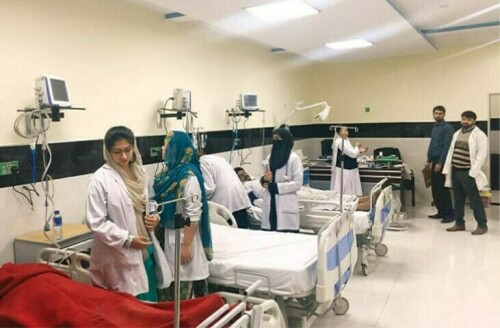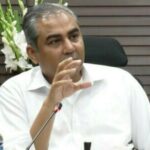LAHORE: To ensure that patients suffering from ischemic stroke receive prompt diagnosis and care, the Punjab government created 12 provincial stroke management centers (PSMCs) at the province’s leading teaching hospitals.
With the exception of one at the Services Hospital Lahore, which was unable to meet the needs of a sizable number of stroke victims in the province, none of these facilities were available in Punjab.
The Punjab government designated eight major hospitals in other major cities and four major hospitals in Lahore to treat stroke victims after realizing the necessity to provide life-saving medical services.
The critical facility would now be available in the following locations: Allied Hospital Faisalabad, Nishtar Hospital Multan, Allama Iqbal Memorial Teaching Hospital Sialkot, Shaikh Zayed Hospital Rahim Yar Khan, Holy Family Hospital Rawalpindi, DHQ Hospital Gujranwala, DHQ Hospital Narowal, and Bahawal Victoria Hospital Bahawalpur. In Lahore, it would now be provided at the Services Hospital Lahore, Mayo Hospital, Sir Ganga Ram, and one dedicated center at the Punjab Institute of Neuro Sciences (PINS) Lahore.
A unhealthy diet is one of the causes of stroke.
The PSMCs were set up at educational institutions with neurology departments and operational CT scan rooms, where specialized medical teams would be on hand to treat patients and begin therapy within four hours of the ischemic stroke occurring.
Speaking with Dawn, Prof. Dr. Qasim Bashir, the chairman of the neurology department at the Services Institute of Medical Sciences (SIMS), provided insight into the initiative.
He stated that after learning about the severity of the condition and the prompt care given by the physicians, the son of a stroke sufferer gave $100,000 to support the establishment of stroke centers in Punjab.
In the meantime, he claimed, Punjab Health Secretary Ali Jan supported and supplied money, logistical help, and hospital facilities at twelve different locations.
“The PSMCs aim to enable medical professionals and the general public to identify strokes at an early stage, reduce disability by establishing a quick emergency response system, guaranteeing quick access to free life-saving care, and stimulating stroke research throughout the province.”
According to Dr. Qasim, as part of the project, Rescue 1122 staff members have received training on how to play a crucial role in transferring stroke patients to certain centers, where a medical team will be on hand to provide prompt diagnosis and treatment.
He said that the centers will offer tissue plasminogen activator (tPA), a potent medication that breaks up blood clots, which is a highly sought-after and expensive injection, for free.
He explained, “It is injected by intravenous administration (IV) for emergency stroke treatment,” adding that a stroke can result from a blood clot (ischemic stroke) or hemorrhagic stroke (hemorrhagic stroke), which are both caused by an interruption in blood flow to the brain.
According to Prof. Qasim, all of the centers have been connected in order to create Punjab’s first trustworthy data bank of stroke sufferers. He claimed that the Punjab health department officials would benefit from this data bank in allocating resources. He also mentioned that individuals of all ages, but especially adults and youth, were at danger of stroke because of their filthy eating habits.
In response to a query, he stated that energy drinks were a major factor in the development of major health risks and advised parents to look out for their children in this way to prevent the onset of stroke.
Khawaja Salman Rafique, the Punjab Minister for Health, was present at the PSMC’s opening ceremony on Thursday at the Services Institute of Medical Sciences auditorium.
Prof. Asif Bashir, Executive Director of the Punjab Institute of Neurosciences, Dr. Jodat Saleem, Principal Sims Professor, Dr. Rizwan Naseer, Punjab Secretary Emergency Services, and other senior. There were medical educators present for the event.








